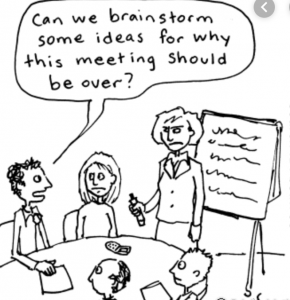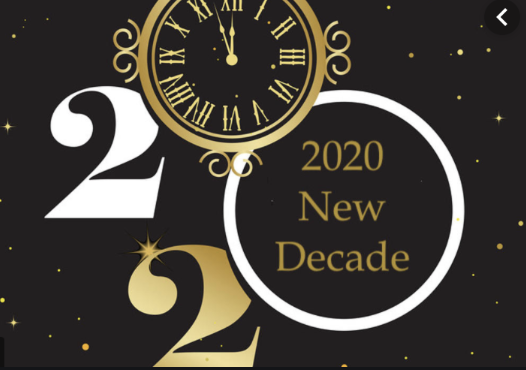16 Jan
2020
What’s New for Business in the 2020s?
10 points to consider…
The 2010s saw many changes in the business world – as 2020 dawns, we look at 10 ways in which businesses may evolve in the decade that is just beginning.
1. An increase in working remotely

The climate crisis is real. Working remotely, at least part of the time, has rapidly gained popularity in the last decade and we imagine this is a trend that will only increase in the future. Working remotely cuts down on commuting hassles, saving time and reducing our carbon footprint. (See point #10!) Advances in technology make this feasible for many businesses; it saves on office space, and allows employees to exercise more control over their lives, resulting in lower stress levels and greater productivity.
2. Shorter work weeks
This may be a logical development from point #1. A few countries have experimented with four-day work weeks, with surprising results. Contrary to what might be thought, the four-day week has been proven to increase productivity while improving the mental and physical health of workers. It seems likely that this, also, is a trend that will become far more widely embraced over the next decade, along with consideration for enhancing life/work balance, flexible working hours and telecommuting. Smart businesses will be including these ideas in their future planning.
3. Fewer meetings

In the 2020s, we expect enterprises to look seriously at the efficiency of, and necessity for, frequent lengthy meetings. Many matters can be dealt with either through short informal meetings with smaller action groups, by circulating memos and findings of above-mentioned groups, or even by internal emails/brief questionnaires. Teleconferencing will, of course, involve those working remotely. It’s important to get feedback from employees and team members, and also to disseminate information; however, there are often more efficient ways of doing this than through long meetings. Limiting meetings to once a month, with strict agendas and time limits, is likely to be a good way forward in the next decade.
4. Increased focusing on target audiences when marketing
There is no excuse, in the third decade of the 21st century, for a ‘catch-all’ approach to marketing. Identifying and focusing on a specific target audience has already become standard practice for many forward-thinking businesses and will almost certainly continue. Those resisting this will therefore find themselves losing customers. Identify the 20% of customers that provide you with 80% of your business income and tailor your marketing specifically to them.
It’s not necessary – except, apparently for political parties fighting elections – to harvest data and then tailor your ads, Facebook style. Few enterprises could afford that approach anyway. Devise your own way to identify with your preferred customers’ needs and purchasing styles, through online surveys and customer management software. Then take it from there.
5. Integrating and adapting to new technology

(Yes, I know there may be many different types of technological advances but the grammatical purist in me still balks at pluralizing a non-count noun – sorry, but ‘technology’ it is!)
Minor pedantic rant aside, it’s always fascinating to look back on the technological advances of the last decade and to attempt to foresee those that may come in the next.
If I recall correctly, I started the 2010s with a BlackBerry, resisting – initially – the newer iPhone. Fortunately, I soon realized the advantages and moved on! But staying on top of advances, especially in the world of IT where things change almost overnight, is essential if we want to stay on top of the competition. However, this may seem overwhelming as technology can change so rapidly; additionally, we don’t necessarily want to be perpetually ‘chasing the dragon’ and jumping on board every new version of smart phone or tablet. (Could I have got any more cliches into this sentence?)
Consider some changes of the last decade and how they have become an integral part of our lives:
iPads; the Cloud; AI; Siri, Alexa, Square POS; self-driving cars (OK, I admit to not being ready to embrace that one just yet!); the list goes on.
What will the 2020s bring? Without a crystal ball, it’s educated guesses at best but I imagine, for one, more and more daily functions being ‘outsourced’ to virtual assistants.
Whatever the developments, the business world must adapt and adapt fast. (Having recently relocated to a small town, I’m still surprised by local businesses that: use – and sometimes actually request – cheques; offer handwritten paper invoices, don’t have websites, etc. That said, others have moved on to payment by e-transfer, and online billing – but it’s an intriguing mix.)
Seriously, though – staying on top of new technology means adapting your workplace to those technological advances that give clear benefit to your enterprise; the purpose is to make sure you’re not the person still using outdated methods and equipment without feeling constant pressure to own the latest version – just because it’s out there. It can be a fine line.
6. Forward planning
Do businesses plan ahead? Hopefully!! But it’s not enough to plan for 2020, or even 2021. We need to be thinking of what the business world will look like in 2030 – and beyond. “Those who fail to plan, plan to fail” remains as true as ever. We can’t necessarily foretell what the new decade will bring but we must have a forward vision of where we hope to be, both in our business and our personal lives, in 10 years time.
7. Soft skills for the new decade
Nothing revolutionary here perhaps – likely the skills we’ve needed to develop in the workplace for the 2010s will also apply in the 2020s. However, when hiring/looking for strategic partners, place emphasis on: critical thinking; creativity; emotional intelligence; complex problem-solving skills; and people management skills.
8. Leadership
Leadership models are changing, and will continue to do so. There needs to be a system of checks and balances in place to protect enterprises from overly authoratitive leaders. Leaders need to be mentors and facilitators rather than dictators, no matter how benign. They need to seek and respect employee and customer feedback and to take responsibility for ensuring both the physical and mental well-being of their employees.
9. Security and privacy
We are right to be a tad paranoid in this area. With major breaches of security and stolen data affecting many institutions, along with huge – and valid – concerns about the harvesting of our personal data, whether for identity theft or to influence our democracy, security and privacy MUST be major concerns for every business owner in the 2020s.
10. Climate change

Last, but by no means least! Australia is on fire as I write, and summer wildfires are an increasing threat worldwide; many countries have recently experienced severe flooding; hurricanes have become terrifyingly more powerful and devastating; the list goes on. Our young people are leading the fight against climate change, to the shame of their elders. Businesses in the 2020s must have a concrete plan to reduce their carbon footprint and increase sustainability.
This may mean: reducing work-related travel, especially by car or air, using teleconferencing in place of face-to-face meetings; eradicating paper from office spaces – yes, really – it’s well overdue; eliminating plastic and minimizing packaging; investing in renewable energy for heating and cooling workspaces; offering secure bike storage for those wishing to cycle to work, and/or using car shares rather than offering company cars as perks, and so on.
We are already seeing forward-looking businesses marketing themselves on their ‘green’ attributes, and I only see this trend increasing. Fail to consider the planet in your organization will mean risking losing clients. Green up!




